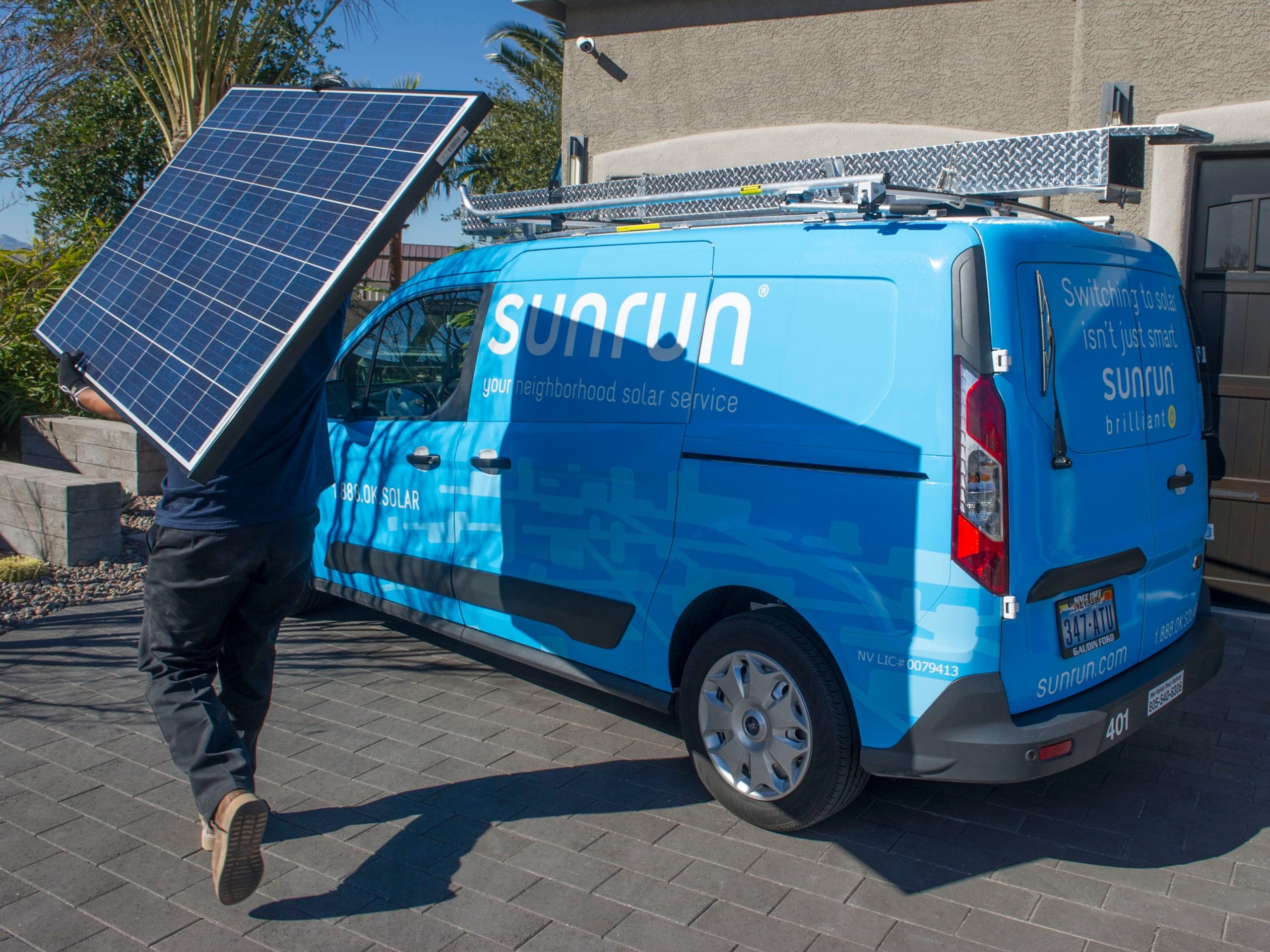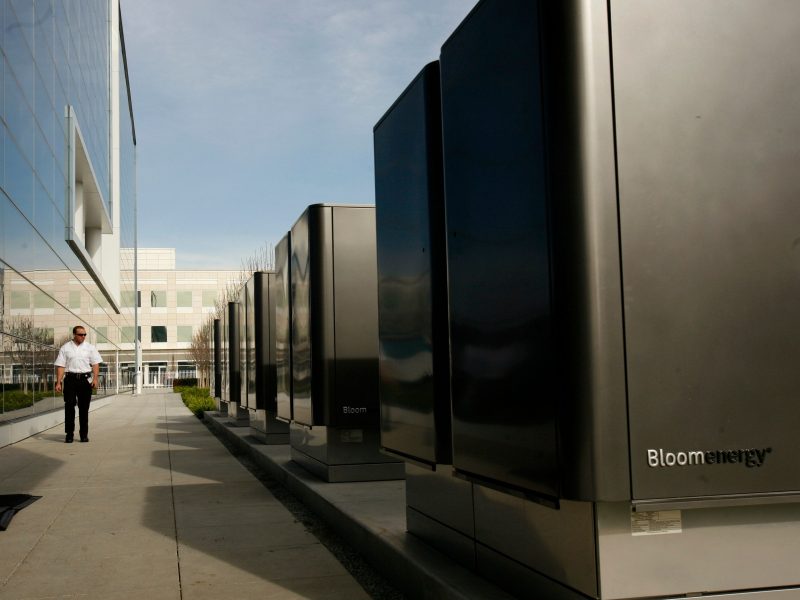Welcome to Power Line, a weekly energy newsletter brought to you by Business Insider.
Here’s what you need to know:
- Want to get Power Line in your inbox every Friday? Sign up here.
- Most of our content is available to BI subscribers. Click here for 20% off.
- Got feedback or tips? Email us at [email protected].
I was off last week – when, of course, some of the biggest energy stories of the summer poured in, from Sunrun announcing a bid to acquire rival Vivint Solar to legal snarls for major pipelines.
Oil markets, on the other hand, have moved very little, though analysts say they’re at risk of slipping again should the second wave of coronavirus cases swell. More on that below.
Before we get to it, one quick note: I'm working on a story about the experience of LGBTIQ workers in the oil and gas industry, including those who are based overseas in countries that out-law same-sex relations. If you know anyone who might be open to chatting with me, please have them reach out at [email protected].
Even a pandemic can't stop the rise of clean-energy investments
2020 won't be remembered as a year of prosperity. Thousands of energy workers have lost their jobs, and global investment in oil exploration and extraction is set for a 15-year low, according to the consulting firm Rystad Energy.
But: There are some signs of resilience, at least in the clean-energy industry.
- In the first six months of the year, investment in renewable energy was actually up about 4%, relative to the same period last year.
- Investment from VC and private-equity firms rose even more, by about 10%, according to the research firm BloombergNEF (BNEF).
Details: Offshore wind investments are behind the surge, while funding for solar and onshore wind slid.
- In the first six months of the year, total funding for offshore wind was up more than 300%, year-on-year.
- "The first half of this year saw investment decisions made on 28 sea-based wind farms, including the largest ever, the 1.5GW Vattenfall Hollandse Zuid array off the coast of the Netherlands, costing an estimated $3.9 billion," BNEF said.
The key investors: We compiled a list of the top VC and private-equity investors fueling the industry. You can see all of those here.
Mega-merger: Sunrun's CFO told us what's behind the $3.2 billion bid to buy Vivint Solar
Should the deal close, it will be the largest consolidation in the history of the residential solar industry, valued at a whopping $3.2 billion.
- The new solar behemoth will have half a million customers, at least 15% market share, and an enterprise value of $9 billion.
Behind the deal: In a call with us on Thursday, Sunrun's CFO, Tom vonReichbauer, said it's about brand recognition, the opportunity to upsell batteries, and a more-diverse sales strategy.
- Vivint, for example, has almost 200,000 customers, and less than 10% of them have batteries attached to their solar systems, according to analysts at Wood Mackenzie.
- Sunrun is a leader in selling batteries with solar panels. The company will inherit Vivint's customers and gain the opportunity to profit big by upselling them batteries.
- Read the story here.
Bloom Energy is dipping into the booming hydrogen industry. It's already paying off.
If you follow my work, you know I love algae. Hydrogen gas is a close second.
- Fun fact 1: Hydrogen is the most abundant element in the universe.
- Fun fact 2: It was called "flammable gas" in the 18th century. You may recall the Hindenburg - a hydrogen-filled airship that exploded in 1937, killing 36 people.
- Fun fact 3: The gas is a ubiquitous industry feedstock, used in the production of ammonia (used, in turn, to make fertilizer) and steel.
As I detail in this explainer, the hydrogen industry is no stranger to booms and busts. Today, it's booming again - thanks, in part, to cheap renewable energy, which you can use to make hydrogen through electrolysis.
- Bloom Energy is one of the few large and public clean-tech companies that aren't in the solar and wind sectors.
- It makes batterylike fuel cells, typically run with natural gas, that can power buildings. Now the company says it will make cells that run on hydrogen.
- Plus, Bloom is developing electrolyzers that will use renewable electricity to make hydrogen from water - yielding what's called green hydrogen. The vast majority of existing hydrogen gas is derived from fossil fuels.
- The company's stock spiked on the news.
- Read our full story to see what analysts are saying, and what this means for the future of the company.
6 essential updates on the oil industry
- BP continues to grow its renewable energy business. This week, the oil giant announced a partnership with JinkoPower, a top Chinese solar developer, to take on China's commercial and industrial market. We also learned that BP is set to acquire a 100% stake in a large wind farm in Indiana.
- The recovery of oil prices remains stalled. US oil futures were trading at about $40 a barrel on Friday, up less than 3% over the last month. The second wave of the coronavirus pandemic has something to do with it.
- But oil demand could rebound sharply next year. Our markets reporter Ben Winck reports that demand for OPEC-sourced crude oil will recover 25% in 2021 and surpass levels seen in 2019, according to an OPEC report.
- OPEC Plus is set to increase oil output. After a historic deal in April to curb oil production in the wake of the coronavirus pandemic, OPEC and its allies will raise production by 2 million barrels per day starting next month, as stipulated in the April agreement.
- More oil-and-gas companies file for bankruptcy protection. California's biggest oil driller, California Resources, filed for Chapter 11 on Thursday. Just a few days earlier, fracking-sand supplier Hi-Crush also filed.
- The Dakota Access Pipeline can continue operating for now. Earlier this month, a US court ruled that the Dakota Access Pipeline - which carries oil from the Bakken region of North Dakota to a terminal in Illinois - must be shut down and emptied. This week, a federal appellate court temporarily blocked that order.
A few startup updates
- ClassPass co-founder Sanjiv Sanghavi is joining the digital utility Arcadia as the chief product officer. More on that next week.
- Form Energy, a startup focused on developing new, long-lasting battery chemistries, brought on two new high-powered execs with experience at Tesla, Apple, and SunPower.
- Sodium-ion battery startup Natron Energy raised $35 million. It's backed by Chevron and Khosla Ventures, among other funders.
That's it! Have a great weekend.
- Benji
Ps. I spent one of my days off hunting for blue-spotted salamanders among the mosquito-ridden swamp-forests of northern Iowa, along with herpetologist Jeffrey LeClere. We found two! Look at this cutie.




